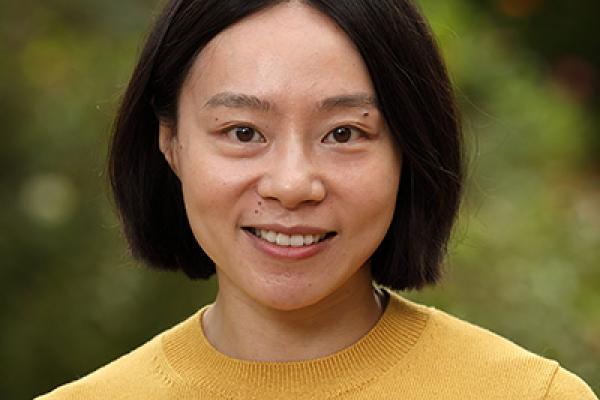
Please join us for the next installment in our "No More Than A Page" series. This series gives an opportunity for faculty and advanced graduate students to receive feedback on their research in process. Presenters provide attendees with a one-page summary of their current research and attendees engage in a lively discussion.
April's lecture will feature Jue Liang, assistant professor of religion at Denison University, presenting “I Am a Buddhist, Not a Feminist: Theorizing Gender Equality in Contemporary Tibet."
In this short presentation, Jue invites the audience to think about the following questions: as a tradition that claims “in enlightenment, there is no gender,” how do we make sense of the historically inferior status of Buddhist women? In particular, as we witness the first group of Buddhist nuns receiving terminal degrees in Buddhist scholasticism, do their Buddhist theories of gender and gender equality find new expressions? If so, what can these new expressions illuminate and expand our definition of gender equality?
Jue Liang is a scholar of Tibetan Buddhist literature, history, and culture. She received her Ph.D. in Religious Studies from the University of Virginia. Her first book project, Conceiving the Mother of Tibet: The Life, Lives, and Afterlife of the Buddhist Saint Yeshe Tsogyel, examines the literary tradition surrounding the matron saint of Tibet, Yeshe Tsogyel, in the fourteenth and fifteenth centuries. It also presents the blossoming of this literary tradition in tandem with the efforts to trace their religious pedigree and define what counts as authentic Buddhism by Nyingma Tibetan Buddhists.
She is currently working on a second project titled Who Is a Buddhist Feminist: Theorizing Gender and Religion in Contemporary Tibet. It is a study on the history, discourse, and social effects of the khenmo program, a gender-equality initiative that has been taking place at Tibetan Buddhist institutions in China for the past three decades. Jue is also an active participant in discussions on Buddhism in both academic and public forums.
At Denison University, Jue teaches courses on Buddhism, Hinduism, religions in Asia, and thematic courses on translation, gender, and the soundscape of religion.
This event is free and open to the public. Co-hosted by the Humanities Institute.
A copy of Jue's page is available upon request. Please email religion@osu.edu to request a copy.
The Humanities Institute and its related centers host a wide range of events, from intense discussions of works in progress to cutting-edge presentations from world-known scholars, artists, and activists, and everything in between. In our current moment of riding the unpredictable currents of the pandemic, we reaffirm the value of in-person engagement. We strive to amplify the energy in the room. But we also recognize the need to be careful and the fact that not all our guests will be able to visit our space. We, therefore, will continue to offer Zoom access to all our events upon request. If you wish to have such access, please send your request to religion@osu.edu or finver.1@osu.edu.
